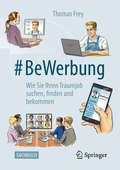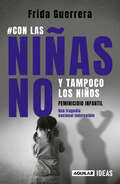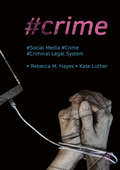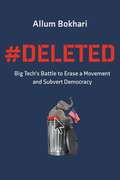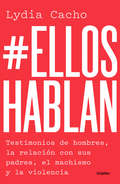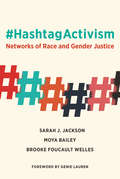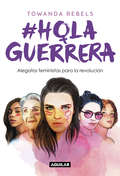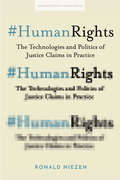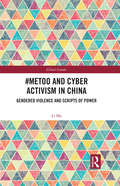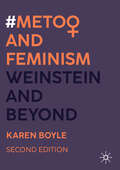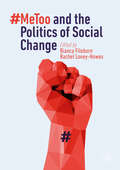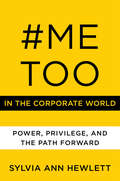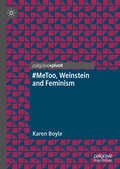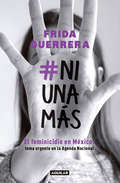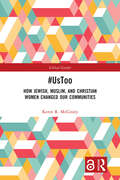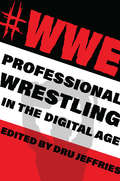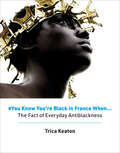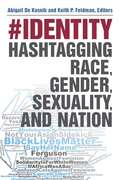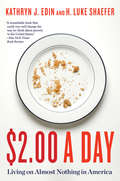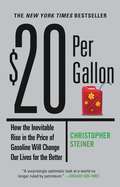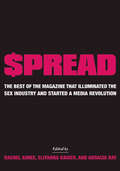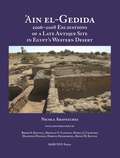- Table View
- List View
#BeWerbung: Wie Sie Ihren Traumjob suchen, finden und bekommen
by Thomas FreyDieser Leitfaden führt Schritt-für-Schritt durch alle Phasen eines erfolgreichen Bewerbungsprozesses und zeigt insbesondere, worauf es bei der Online-Stellensuche und der Selbstdarstellung in der digitalen Welt ankommt. Das Recruiting neuer Mitarbeiter verlagert sich mehr und mehr in die virtuelle Welt: Bewerberprofile werden von Algorithmen vorgefiltert und die Vernetzung über Social Media und Networks sorgt für steigende Transparenz. Im ersten Teil des Buches können sich Bewerber anhand zahlreicher Reflexionsfragen selbst einschätzen: Welche Aufgaben und Arbeitsumgebungen passen zu mir? Was sind meine Stärken und Kompetenzen? Erst dann beginnt die Suche nach einer passenden Ausschreibung, sei es über Online-Plattformen, Suchmaschinen, Unternehmenswebseiten oder soziale Netzwerke. Der Autor zeigt, wie eine wirkungsvolle Selbstdarstellung im WWW funktioniert und aussagekräftige Bewerbungsunterlagen formuliert sind. Im nächsten Kapitel dreht sich alles um das Vorstellungsgespräch, sei es virtuell oder am Firmenstandort. Weitere Kapitel behandeln die rechtlichen Aspekte des Bewerbungsprozesses und Arbeitsvertrages und zeigen, was es beim Start ins neue Berufsleben mit dem ersten Arbeitstag und der Probezeit zu beachten gilt. Das Buch richtet sich an alle, die auf der Suche nach ihrem Traumjob sind – Berufseinsteiger, Uni-Absolventen und Berufserfahrene, die sich neu orientieren möchten. Besonders hilfreich sind die zahlreichen Reflexionsfragen, Insidertipps und Beispiele – kombiniert mit knappen und übersichtlichen Informationen.Der erfolgreiche BewerbungsprozessWelche Arbeit passt zu mir? – Werte, Kompetenzen und Arbeitsstile Wie finde ich die passende Arbeit? – Suche nach Stellenanzeigen, Selbstdarstellung im Internet und aussagekräftige BewerbungsunterlagenDie passende Arbeit bekommen – Vorstellungsgespräche meisternArbeitsvertrag und Rechtliches im Bewerbungsprozess Ziel erreicht: Der erste Arbeitstag
#Con las niñas no y tampoco los niños: Feminicidio infantil una tragedia nacional indetenible
by Frida GuerreraEl libro está armado con entrevistas a funcionarios públicos, voces de niños salvados, testimonios de familiares muertos en vida por la muerte de sus pequeños, cartas desgarradoras y reflexiones que motivan un alto imperante a la violencia infantil, un compromiso social para decir basta al ataque a nuestros seres inocentes. En México, nada detiene la violencia contra las mujeres y lo más trágico es que los golpes, el abuso sexual y el asesinato ocurren también con las niñas, víctimas de la perversidad de los seres humanos, la complicidad —en muchos casos— de familiares y la indiferencia de las autoridades, de nuestros gobiernos que no aplican las medidas pertinentes para detener los feminicidios y los abusos mortales contra la infancia. #Con las niñas no. Y tampoco los niños es una investigación sin precedentes sobre el feminicidio infantil que devela cómo en la pandemia creció este delito, quiénes son los verdugos y cómo cruzan este infierno los padres de estas niñas y niños sacrificados. Además, Frida Guerrera ofrece recomendaciones sobre lo que debe hacerse en caso de violencia contra la niñez, a qué organismos acudir, líneas de denuncia y un directorio de procuradurías del país.
#Crime: Social Media, Crime, and the Criminal Legal System (Palgrave Studies in Crime, Media and Culture)
by Rebecca M. Hayes Kate LutherAs research continues to accumulate on the connections between media and crime, #Crime explores the impact of social media on the criminal legal system. It examines how media influences our perceptions of crime, the perpetration of crime, and the implementation of punishment, whilst emphasizing the significance of race, ethnicity, class, gender, and sexuality. It offers an accessible and in-depth examination of media and in each chapter there are case studies and examples from both legacy and new media, including discussions from Twitter that are being used to raise awareness of criminal legal issues. It also includes interviews with international scholars and practitioners from Australia, Belgium, and the United States to voice a range of global perspectives. This book speaks broadly to those interested in criminology, criminal justice, media and culture, sociology, and gender studies.
#DELETED: Big Tech's Battle to Erase a Movement and Subvert Democracy
by Allum BokhariThe most powerful tech companies in the world are determined to stop Donald Trump.Journalist Allum Bokhari has spent four years investigating the tech giants that dominate the Internet: Google, Facebook, YouTube, Twitter. He has discovered a dark plot to seize control of the flow of information, and utilize that power to its full extent - to censor, manipulate, and ultimately sway the outcome of democratic elections. His network of whistleblowers inside Google, Facebook and other companies explain how the tech giants now see themselves as "good censors," benevolent commissars controlling the information we receive to "protect" us from "dangerous" speech.They reveal secret methods to covertly manipulate online information without us ever being aware of it, explaining how tech companies can use big data to target undecided voters. They lift the lid on a plot four years in the making - a plot to use the power of technology to stop Donald Trump's re-election.
#DoNotDisturb: How I Ghosted My Cell Phone to Take Back My Life
by Jedediah BilaHave you ever looked at your email, then texts, then Facebook, then Twitter, then email, then Instagram, then Candy Crush, then texts, then Snapchat, then texts again, and now you’ve wasted the time you had set aside for more important things? Jedediah Bila has solved her own Obsessive Compulsive Tech Disorder, and she did it without throwing away her devices.It's time to switch on airplane mode and settle into Jedediah Bila’s #DoNotDisturb: How I Ghosted My Cell Phone to Take Back My Life.In this timely, entertaining and inspiring book, Jedediah Bila chronicles her chaotic, confusing, and all-consuming love-hate relationship with - her cell phone. Stepping back from the whirlwind of texting, social media, and an endless sea of apps, Bila questions how our relationships, character, and sanity have suffered from our deep dive into the digital abyss. Exploring the toll that tech addiction took on her life, Bila reveals her missteps and mistakes, including several upending, life-altering months swirling in an ex-boyfriend’s cell-phone-enabled double life, and how a low-tech millennial later stole her heart.Travel with Jedediah through the embarrassing and catastrophic consequences of Ménage-a-Tech relationships, social media's Perception Deception, and the One-Potato-Chip-Problem of trying to resist Silicon Valley's hypnotic, slot-machine software designed to lure you in. Bila reveals how she navigated away from an unhealthy, oversaturated diet of tech junk food to striking just the right balance with technology to let her unplugged, real-life moments take charge. In #DoNotDisturb, Bila applies her trademark no-nonsense, common-sense, personal responsibility and accountability-centered approach, warning us that if we don’t stop acting like robots, our very humanity is at stake. Through warm anecdotes and cold, hard truths, Bila reveals how she pulled her way out of the tech fog to keep her eyes focused on the life right in front of her. And how you can too.
#EllosHablan: Testimonios de hombres, la relación con sus padres, el machismo y la violencia.
by Lydia Cacho«El machismo es la idealización de la violencia como medio, como fin, como instrumento educativo coercitivo; es una trampa que normaliza lo inaceptable.» Con estas palabras Lydia Cacho define el punto de partida de este libro imprescindible. #EllosHablan son testimonios de diversos hombres que hablan de su infancia y ponen en evidencia la violencia que vivieron en su entorno. Ellos nos dejan ver cómo en el ambiente hogareño y hostil, los niños normalizan aquello que más tarde detonará en relaciones verticales, violentas y discriminatorias que avalan un sistema de impunidad y paternalismo salvaje. Lydia Cacho va a contracorriente de nuevo; acompaña a los hombres a mirarse al espejo en busca de un diálogo abierto en el que ellos hablan para entender los orígenes de la violencia. La autora nos invita a pensar desde otro lugar para desmenuzar esto que llamamos "el hombre normal". Una investigación que busca replantear el liderazgo masculino; cuestionar la sumisión ante la violencia a fin de que niños y jóvenes tengan nuevos asideros para construir su identidad sin atavismos. «El machismo es como una prisión bajo tierra. Un lugar rabioso, sobrepoblado y solitario a la vez. En ese sitio, todo se trata de romper a otros o que te rompan. Y uno descubre que está allá abajo un día, que está desde niño. Y entonces, a veces, uno decide escalar, rasparse, golpearse, arañarse y alejarse todo lo posible. Porque si hay una mejor vida que esa, seguro que está en otro lado.» Antonio Ortuño, escritor
#HashtagActivism: Networks of Race and Gender Justice
by Sarah J. Jackson Moya Bailey Brooke Foucault WellesHow marginalized groups use Twitter to advance counter-narratives, preempt political spin, and build diverse networks of dissent. The power of hashtag activism became clear in 2011, when #IranElection served as an organizing tool for Iranians protesting a disputed election and offered a global audience a front-row seat to a nascent revolution. Since then, activists have used a variety of hashtags, including #JusticeForTrayvon, #BlackLivesMatter, #YesAllWomen, and #MeToo to advocate, mobilize, and communicate. In this book, Sarah Jackson, Moya Bailey, and Brooke Foucault Welles explore how and why Twitter has become an important platform for historically disenfranchised populations, including Black Americans, women, and transgender people. They show how marginalized groups, long excluded from elite media spaces, have used Twitter hashtags to advance counternarratives, preempt political spin, and build diverse networks of dissent. The authors describe how such hashtags as #MeToo, #SurvivorPrivilege, and #WhyIStayed have challenged the conventional understanding of gendered violence; examine the voices and narratives of Black feminism enabled by #FastTailedGirls, #YouOKSis, and #SayHerName; and explore the creation and use of #GirlsLikeUs, a network of transgender women. They investigate the digital signatures of the “new civil rights movement”—the online activism, storytelling, and strategy-building that set the stage for #BlackLivesMatter—and recount the spread of racial justice hashtags after the killing of Michael Brown in Ferguson, Missouri, and other high-profile incidents of killings by police. Finally, they consider hashtag created by allies, including #AllMenCan and #CrimingWhileWhite.
#HolaGuerrera: Alegatos feministas para una revolución
by Towanda RebelsUn alegato feminista que sacudirá conciencias. El libro de las creadoras de las campañas HolaPutero y YoTeCreo. #HolaGuerrera, ¿estás harta de ser invisible? ¿Te sientes menospreciada en el trabajo, en la calle, en tu vida diaria? ¿Te enfada escuchar los abusos que sufren las mujeres a cada momento? Si tu respuesta es sí, queremos que sepas que no estás loca, no exageras, no eres ninguna histérica: a todas nos oprimen por la sencilla razón de haber nacido mujeres en un mundo gobernado por la testosterona. Por eso somos muchas, muchísimas, las que estamos en pie de guerra. Y, ¿sabes qué? Te necesitamos a nuestro lado peleando por la igualdad, porque ya va siendo hora, porque estamos hartas de un mundo injusto. Bienvenida a esta lucha formada por batallas de pancartas, bombas de argumentos y balas de palabras. Sacúdete los estereotipos que te encadenan y liberémonos juntas de los roles que ya estamos cansadas de representar. Esta guerra la ganamos todas y todos, porque la revolución será feminista.
#HumanRights: The Technologies and Politics of Justice Claims in Practice (Stanford Studies in Human Rights)
by Ronald NiezenSocial justice and human rights movements are entering a new phase. Social media, artificial intelligence, and digital forensics are reshaping advocacy and compliance. Technicians, lawmakers, and advocates, sometimes in collaboration with the private sector, have increasingly gravitated toward the possibilities and dangers inherent in the nonhuman. #HumanRights examines how new technologies interact with older models of rights claiming and communication, influencing and reshaping the modern-day pursuit of justice. Ronald Niezen argues that the impacts of information technologies on human rights are not found through an exclusive focus on sophisticated, expert-driven forms of data management but in considering how these technologies are interacting with other, "traditional" forms of media to produce new avenues of expression, public sympathy, redress of grievances, and sources of the self. Niezen considers various ways that the pursuit of justice is happening via new technologies, including crowdsourcing, social media–facilitated mobilizations (and enclosures), WhatsApp activist networks, and the selective attention of Google's search engine algorithm. He uncovers how emerging technologies of data management and social media influence the ways that human rights claimants and their allies pursue justice, and the "new victimology" that prioritizes and represents strategic lives and types of violence over others. #HumanRights paints a striking and important panoramic picture of the contest between authoritarianism and the new tools by which people attempt to leverage human rights and bring the powerful to account.
#MeToo and Cyber Activism in China: Gendered Violence and Scripts of Power (Global Gender)
by Li MaThis book focusses on the #MeToo movement in China, critically examining how three competing ideologies have worked in co-opting #MeToo activism: China’s official communism, Western neoliberalism, and an emerging Chinese cyber-feminism. In 2018, China’s #MeToo cyber activism initially maintained its momentum despite strict censorship, presenting women’s voices against gendered violence and revealing scripts of power in different sectors of society. Eventually though it lost impetus with sloganization and stigmatization under a trio forces of pressures: corporate corruption, over-politicization by Western media and continued state censorship. The book documents the social events and gendered norms in higher education, NGOs, business and religious circles that preceded and followed high-profile cases of alleged sexual abuses in mainland China, engaging with sociological scholarship relating to demoralization and power, media studies and gender studies. Through these entwined theories the author seeks to give both scholars and the general audience in gender studies a window into the ongoing tension in the power spheres of state, market and gendered hierarchy in contemporary Chinese society. This book will be of interest to students of gender studies, China studies, media studies, and cultural Studies
#MeToo and Feminism: Weinstein and Beyond
by Karen BoyleThis book is a revised, updated and expanded edition of #MeToo, Weinstein and Feminism (2019). In this second edition, Boyle argues for the importance of understanding #MeToo in relation to an ongoing history of feminist activism and popular misogyny, which normalises and values men’s abuse of women. She considers the consequences of #MeToo for accused men, notably with regards to cancellation practices and criminal justice, drawing on prominent examples such as Harvey Weinstein, R. Kelly, Johnny Depp and Woody Allen, among many others. Two new chapters—on the long #MeToo movement and on survivor testimony—consider #MeToo alongside debates on popular feminism and misogyny in a range of contexts and reflect on the implications of the continued emphasis on survivor testimony in media coverage of sexual harassment and assault. Written by one of the foremost experts in gender, media and violence in the UK, this new edition is essential reading for those interested in feminism and the media, scholars and students alike.
#MeToo and the Politics of Social Change
by Bianca Fileborn Rachel Loney-Howes#MeToo has sparked a global re-emergence of sexual violence activism and politics. This edited collection uses the #MeToo movement as a starting point for interrogating contemporary debates in anti-sexual violence activism and justice-seeking. It draws together 19 accessible chapters from academics, practitioners, and sexual violence activists across the globe to provide diverse, critical, and nuanced perspectives on the broader implications of the movement. It taps into wider conversations about the nature, history, and complexities of anti-rape and anti-sexual harassment politics, including the limitations of the movement including in the global South. It features both internationally recognised and emerging academics from across the fields of criminology, media and communications, film studies, gender and queer studies, and law and will appeal broadly to the academic community, activists, and beyond.
#MeToo in the Corporate World: Power, Privilege, and the Path Forward
by Sylvia Ann HewlettEconomist and award-winning author Sylvia Ann Hewlett blends vivid stories with powerful new data in assessing the impact of the #MeToo movement in corporate America and provides concrete action to help executives and companies create more inclusive and safe work environments for women, people of color, and LGBTQ employees. While the #MeToo movement has exposed the enormous harm done by sexual misconduct in the workplace, the movement’s full promise has not been fulfilled, Sylvia Ann Hewlett argues. Showcasing new data on the incidence of sexual harassment and assault at work, she reveals how the movement has focused almost exclusively on white women and failed to support other vulnerable groups who are also targets of abuse. Black men, gay men and women, and Latinas experience particularly high rates of sexual harassment and assault. In addition to exploring the movement’s limitations, Hewlett examines the collateral damage inflicted by #MeToo. She looks at hits to the bottom line (lawsuits and settlements, tarnished brands, and stock devaluations) and hits to the talent pipeline. In particular she shows how male leaders, fearful of gossip and legal action, are increasingly skittish about sponsoring young women, no matter how high performing they are. This makes it much more likely that women will stall out mid-career and will deprive companies of diversity in the C-Suite and “gender smarts” around decision-making tables. Digging deep into examples that range from Fox News, Nike, and Google to CBS, Michigan State University, and the Catholic Church, Hewlett lays bare the financial losses associated with sexual misconduct scandals. No wonder corporate chief risk officers newly have #MeToo in their line of sight! A third of this book is devoted to solutions and Hewlett offers a three-pronged strategy, combining legal remedies with individual and corporate action steps that can be used to protect employees and businesses they work for. Drawing from companies as different as IBM and IPG she discusses “experiments at the edge” as well as more evolved initiatives that can help any corporation create a more equitable and safer environment.
#MeToo, Weinstein and Feminism
by Karen BoyleThis book provides a feminist analysis of #MeToo and the sexual assault allegations against celebrity perpetrators which have emerged since the Weinstein story of October 2017. It argues for the importance of understanding #MeToo in relation to an on-going history of Anglo-American feminist activism, theory and interdisciplinary research. Boyle investigates how speaking out about rape, sexual assault and harassment on social media can be understood in relation to second-wave feminist traditions of consciousness-raising. Her argument explores the media depiction of feminism – and feminists - in the wake of Weinstein and the cultural values associated with men’s abuse, particularly within the film and television industries. The book concludes with an exploration of what the #MeToo era has meant for men as victims/survivors and as alleged perpetrators, in relation to narratives of victimisation and of monstrosity.
#NiUnaMás: El feminicidio en México: tema urgente en la Agenda Nacional
by Frida GuerreraUn llamado urgente a la sociedad y al gobierno para detener la impunidad ante los feminicidios en México. El feminicidio en México se ha convertido en práctica común, las cifras superan cualquier expectativa. Ante la indiferencia del gobierno y el pésimo manejo de las autoridades, es cruelmente normal que mueran mujeres violadas, secuestradas, lapidadas, estranguladas, a manos de asaltantes, violadores, familiares, incluso de sus esposos o parejas sentimentales. El problema no sólo ocurre en las clases más necesitadas del país: el mal trasciende y aparece en todos los estratos de la sociedad. ¿A quién acudir? ¿Qué hace al respecto la autoridad? ¿Qué opinan organismos de derechos humanos o feministas? Ante la desesperanza/desesperación, Frida Guerrera responde estos cuestionamientos y ofrece en este libro no sólo numerosos casos de feminicidios, también comparte la experiencia de padres de familia y seres queridos de las mujeres sacrificadas, testimonios de las sobrevivientes, hondas reflexiones sobre las mujeres desaparecidas y una guía indispensable para evitar más víctimas con datos precisos sobre los lugares que asesoran a mujeres violentadas, herramientas necesarias para evitar el maltrato y la violencia de género. El libro no es, por mucho, un recuento de nota roja, es un llamado para atender con leyes efectivas los actos criminales y, sobre todo, una respuesta humana y conmovedora a este creciente problema social. #NoSeasIndiferente
#UsToo: How Jewish, Muslim, and Christian Women Changed Our Communities (Global Gender)
by Keren R. McGinity#UsToo: How Jewish, Muslim, and Christian Women Changed Our Communities examines the relationship between sexual harassment, gender, and multiple religions, highlighting the voices of women of different faiths who found their voices and used them for the betterment of their communities. Through personal interviews and other research, this book explores the actions of American Jewish, Muslim, and Christian women who broke the silence about sexual misconduct and abuse of power by male co-religionists. Using a three-dimensional, ethnoreligious approach that examines gender, ethnicity, and religion, it addresses the relationship between religion and women’s experiences and examines both historical contexts and present-day experiences of sexual misconduct within faith communities. This book will be of key interest to students within Gender Studies, History, Religion, and Sociology, clergy and lay religious leaders, and human rights advocates.
#UsToo: How Jewish, Muslim, and Christian Women Changed Our Communities (Global Gender)
by Keren R. McGinity#UsToo: How Jewish, Muslim, and Christian Women Changed Our Communities examines the relationship between sexual harassment, gender, and multiple religions, highlighting the voices of women of different faiths who found their voices and used them for the betterment of their communities.Through personal interviews and other research, this book explores the actions of American Jewish, Muslim, and Christian women who broke the silence about sexual misconduct and abuse of power by male co-religionists. Using a three-dimensional, ethnoreligious approach that examines gender, ethnicity, and religion, it addresses the relationship between religion and women’s experiences and examines both historical contexts and present-day experiences of sexual misconduct within faith communities.This book will be of key interest to students within Gender Studies, History, Religion, and Sociology, clergy and lay religious leaders, and human rights advocates.
#Wwe: Professional Wrestling in the Digital Age (The Year's Work: Studies in Fan Culture and Cultural Theory)
by Dru JeffriesThe millions of fans who watch World Wrestling Entertainment (WWE) programs each year are well aware of their role in building the narrative of the sport. #WWE: Professional Wrestling in the Digital Age explores the intersections between media, technology, and fandom in WWE's contemporary programming and business practices. In the Reality Era of WWE (2011 to the present), wrestling narratives have increasingly drawn on real-life personalities and events that stretch beyond the story-world created and maintained by WWE. At the same time, the internet and fandom have a greater influence on the company than ever before. By examining various sites of struggle and negotiation between WWE executives and in-ring performers, between the product and its fans, and between the company and the rest of the wrestling industry, the contributors to this volume highlight the role of various media platforms in shaping and disseminating WWE narratives. Treating the company and its product not merely as sports entertainment, but also as a brand, an employer, a company, a content producer, and an object of fandom, #WWE conceptualizes the evolution of professional wrestling's most successful company in the digital era.
#You Know You're Black in France When: The Fact of Everyday Antiblackness
by Trica KeatonA groundbreaking study about everyday antiblackness and its refusal in an officially raceblind France.What does it mean to be racialized-as-black in France on a daily basis? #You Know You&’re Black in France When… responds to that question. Under the banner of universalism, France messages a powerful and seductive ideology of blindness to race that disappears blackened people and the antiblackness they experience. As Tricia Keaton notes, in everyday life, France is anything but raceblind. In this interdisciplinary study, drawn from a range of critical scholarship including that of Philomena Essed and Frantz Fanon, Keaton illuminates how b/Black (racialized/politicized) French people distinctly expose and refuse what she calls &“raceblind republicanism.&” By officially turning a blind eye to the specificity of antiblackness, the French state in fact perpetuates it, she argues, along with structural racism. Through daily life, public policies, visual culture, the private lives of individuals and families shattered by police violence, the French courts where many are fighting back, and her own experiences, Keaton charts the troubling dynamics and continuities of antiblackness in French society.
#identity: Hashtagging Race, Gender, Sexuality, and Nation
by Abigail De Kosnik Keith FeldmanSince its launch in 2006, Twitter has served as a major platform for political performance, social justice activism, and large-scale public debates over race, ethnicity, gender, sexuality, and nationality. It has empowered minoritarian groups to organize protests, articulate often-underrepresented perspectives, and form community. It has also spread hashtags that have been used to bully and silence women, people of color, and LGBTQ people. #identity is among the first scholarly books to address the positive and negative effects of Twitter on our contemporary world. Hailing from diverse scholarly fields, all contributors are affiliated with The Color of New Media, a scholarly collective based at the University of California, Berkeley. The Color of New Media explores the intersections of new media studies, critical race theory, gender and women’s studies, and postcolonial studies. The essays in #identity consider topics such as the social justice movements organized through #BlackLivesMatter, #Ferguson, and #SayHerName; the controversies around #WhyIStayed and #CancelColbert; Twitter use in India and Africa; the integration of hashtags such as #nohomo and #onfleek that have become part of everyday online vernacular; and other ways in which Twitter has been used by, for, and against women, people of color, LGBTQ, and Global South communities. Collectively, the essays in this volume offer a critically interdisciplinary view of how and why social media has been at the heart of US and global political discourse for over a decade.
$2.00 a Day: Living on Almost Nothing in America
by Kathryn J. Edin H. Luke ShaeferA revelatory account of poverty in America so deep that we, as a country, don Jessica Compton's family of four would have no cash income unless she donated plasma twice a week at her local donation center in Tennessee. Modonna Harris and her teenage daughter Brianna in Chicago often have no food but spoiled milk on weekends. After two decades of brilliant research on American poverty, Kathryn Edin noticed something she hadn't seen since the mid-1990s -- households surviving on virtually no income. Edin teamed with Luke Shaefer, an expert on calculating incomes of the poor, to discover that the number of American families living on $2.00 per person, per day, has skyrocketed to 1.5 million American households, including about 3 million children. Where do these families live? How did they get so desperately poor? Edin has "turned sociology upside down" (Mother Jones) with her procurement of rich -- and truthful -- interviews. Through the book's many compelling profiles, moving and startling answers emerge. The authors illuminate a troubling trend: a low-wage labor market that increasingly fails to deliver a living wage, and a growing but hidden landscape of survival strategies among America's extreme poor. More than a powerful exposé, $2.00 a Day delivers new evidence and new ideas to our national debate on income inequality.
$20 Per Gallon: How the Inevitable Rise in the Price of Gasoline Will Change Our Lives for the Better
by Christopher SteinerImagine an everyday world in which the price of gasoline (and oil) continues to go up, and up, and up. Think about the immediate impact that would have on our lives. Of course, everybody already knows how about gasoline has affected our driving habits. People can't wait to junk their gas-guzzling SUVs for a new Prius. But there are more, not-so-obvious changes on the horizon that Chris Steiner tracks brilliantly in this provocative work. Consider the following societal changes: people who own homes in far-off suburbs will soon realize that there's no longer any market for their houses (reason: nobody wants to live too far away because it's too expensive to commute to work). Telecommuting will begin to expand rapidly. Trains will become the mode of national transportation (as it used to be) as the price of flying becomes prohibitive. Families will begin to migrate southward as the price of heating northern homes in the winter is too pricey. Cheap everyday items that are comprised of plastic will go away because of the rising price to produce them (plastic is derived from oil). And this is just the beginning of a huge and overwhelming domino effect that our way of life will undergo in the years to come. Steiner, an engineer by training before turning to journalism, sees how this simple but constant rise in oil and gas prices will totally re-structure our lifestyle. But what may be surprising to readers is that all of these changes may not be negative - but actually will usher in some new and very promising aspects of our society. Steiner will probe how the liberation of technology and innovation, triggered by climbing gas prices, will change our lives. The book may start as an alarmist's exercise.... but don't be misled. The future will be exhilarating.
$pread: The Best of the Magazine that Illuminated the Sex Industry and Started a Media Revolution
by Edited By Rachel Aimee, Eliyanna Kaiser and Audacia Ray&“A fascinating collection from a group of courageous women who created the first publication to explore sex work in a compelling and intelligent way.&” —Candida Royalle $pread, an Utne Award–winning magazine by and for sex workers, was independently published from 2005 to 2011. This collection features enduring essays about sex work around the world, first-person stories that range from deeply traumatic to totally hilarious, analysis of media and culture, and fantastic illustrations and photos produced just for the magazine. The book also features the previously untold story of $pread and how it has built a wider audience in its posthumous years. What started as a community tool and trade magazine for the sex industry quickly emerged as the essential guide for people curious about sex work, for independent magazine enthusiasts, and for labor and civil rights activists.
'Abd al-Rahman b. 'Amr al-Awza'i (Makers of the Muslim World)
by Steven C. Judd&‘Abd al-Rahman b. &‘Amr al-Awza&‘i (c.707–774) was Umayyad Syria&’s most influential jurist, part of a generation of scholars who began establishing the first formal structures for the preservation and dissemination of religious knowledge. Following the Abbasid revolution, they provided a point of stability in otherwise unstable times. Despite his close ties to the old regime, al-Awza&‘i continued to participate in legal and theological matters in the Abbasid era. Although his immediate impact would prove short-lived, his influence on aspects of Islamic law, particularly the laws of war, endures to this day.
'Ain el-Gedida: 2006-2008 Excavations of a Late Antique Site in Egypt's Western Desert (Amheida IV) (ISAW Monographs #8)
by Nicola AravecchiaThe fourth volume in the Amheida series, ‘Ain el-Gedida: 2006-2008 Excavations of a Late Antique Site in Egypt's Western Desert (Amheida IV) presents the systematic record and interpretation of the archaeological evidence from the excavations at ‘Ain el-Gedida, a fourth-century rural settlement in Egypt's Dakleh Oasis uniquely important for the study of early Egyptian Christianity and previously known only from written sources.Nicola Aravecchia (Washington University), the Deputy Field Director of NYU's Amheida Excavations, offers a history of the site and its excavations, followed by an integrated topographical and archaeological interpretation of the site and its significance for the history of Christianity in Egypt. In the second half of the volume a team of international experts presents catalogs and interpretations of the archaeological finds, including ceramics (Delphine Dixneuf, CRNS), coins (David M. Ratzan, NYU), ostraca and graffiti (Roger S. Bagnall, NYU and Dorota Dzierzbicka, University of Warsaw), small finds (Dorota Dzierzbicka, University of Warsaw), and zooarcheological remains (Pamela J. Crabtree, NYU and Douglas Campana).
